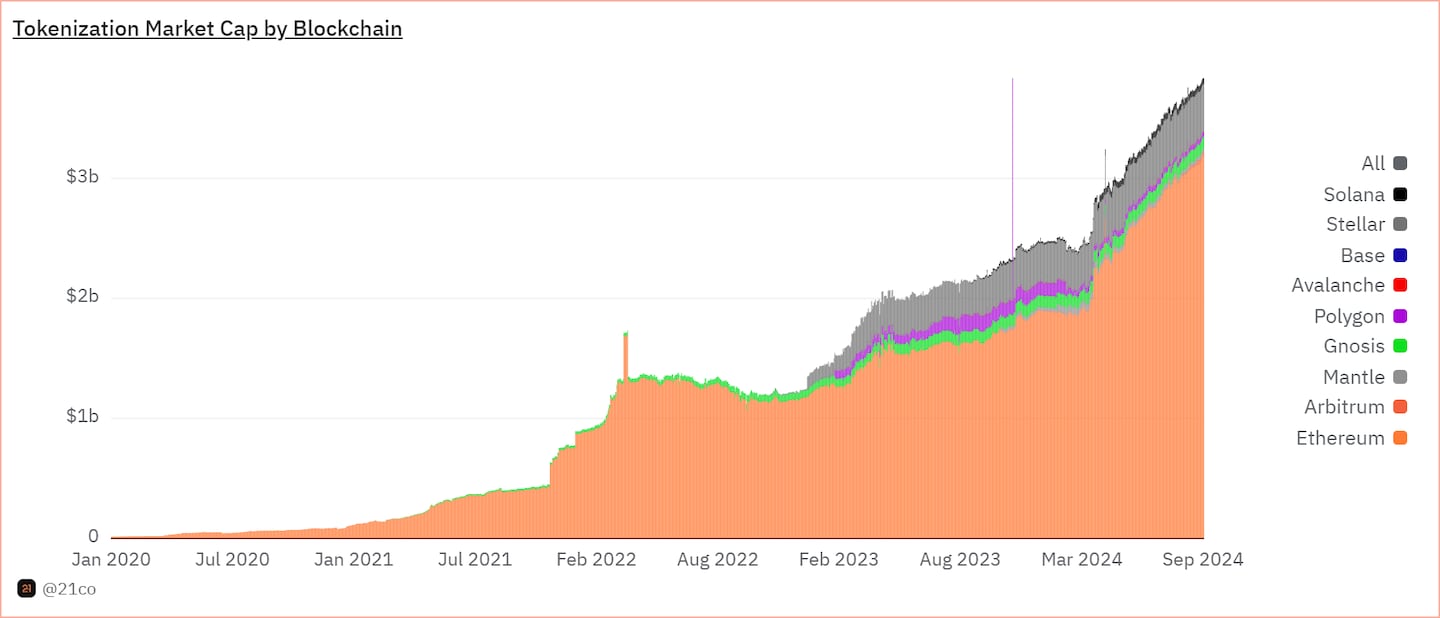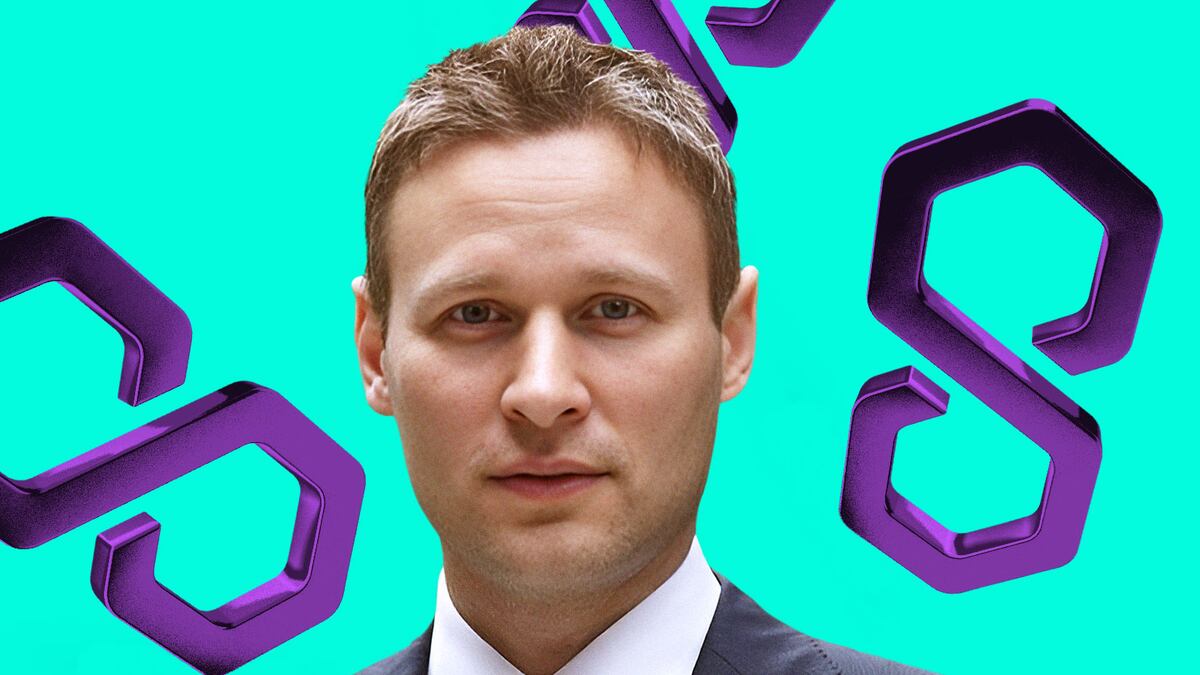- The tokenisation trend is set to accelerate, says Polygon’s head of institutional capital.
- But financial firms are picky about which blockchains they will tokenise assets on.
- Ethereum is the most popular choice, but that could change.
Polygon is positioning itself as a major competitor in the coming $16 trillion tokenisation land grab.
Increasing client demand and regulatory clarity have pushed banks and financial institutions to experiment with issuing assets like US Treasury bonds, equities, and private debt on public blockchains.
This trend is set to accelerate over the next six months, according to Colin Butler, Polygon’s head of institutional capital.
“People are still trying to figure out what’s compliant,” he told DL News. “Once certain things get accepted as collateral at big places, then I think everybody else gets to do it. And that’s when I think you see the L curve for adoption.”
Tokenisation promises to slash asset transfer times, reduce costs, and update the creaking infrastructure that supports much of the traditional financial system.
Boston Consulting Group estimates that asset tokenisation will swell into a $16 trillion market by 2030.
Consultancy Bain & Company expects tokenisation to unlock $400 billion in additional revenue per year for asset managers.
For the blockchain firms that provide the rails for asset tokenisation, the coming months could be a once-in-a-lifetime opportunity.
But, Butler said, courting financial institutions like BlackRock, State Street and Vanguard is very different from the DeFi-focused ‘degen’ users Polygon is used to.
‘Not amateur hour’
For all their benefits, blockchains are still, at times, unreliable.
Solana has gone offline several times in recent years, leaving users in the lurch. In March, one of Polygon’s own blockchains was knocked offline for 14 hours.
This situation isn’t acceptable for traditional financial firms, who need someone to call to handle problems.
“When you’re an institution, what you’re first and foremost reliant on is trust,” Butler said.
But this can clash with some blockchains’ commitment to decentralisation. Often, there is no central authority managing the technology, instead leaving that job to contributors or a nonprofit foundation.
BlackRock’s Bitcoin exchange-traded fund uses Coinbase Prime, a prime brokerage platform with over 3,400 employees, to custody assets.
It also runs its own Bitcoin node, and uses the data to verify the assets backing the ETF are held by Coinbase.
“This is not amateur hour,” Bloomberg Intelligence analyst Eric Balchunas said on X about the way BlackRock operates its Bitcoin ETF. “[They] have been doing this for decades without a hitch. This is why they and other ETF issuers are trusted by America’s advisers so much.”
Butler is no stranger to the demands of firms like BlackRock.
“If you’re the guy that built on that chain and it doesn’t work for some reason, and you say, ‘well, it’s actually a decentralised platform and there’s no one to call,’ you’re fired, right?” he said. “They can’t underwrite that.”
Best-in-class security
Polygon says it’s well positioned to cater to institutions.
Many of the firm’s executives worked on Wall Street, so they “can speak the language and help institutions underwrite the trust in the tech.” Butler said.
Polygon is home to 22 different tokenised assets from issuers such as Franklin Templeton, per data compiled by 21.co. However, these products only account for a combined worth of $38 million.

That’s fewer than half the number on smart contract network Ethereum, which holds over $3 billion in tokenised assets.
Butler conceded that Ethereum’s best-in-class security means it is a top choice for institutions.
“Ethereum is the best network for security hands down,” Butler said. “If you’re not settling to Ethereum then you’re taking a security risk that I wouldn’t recommend a firm like BlackRock taking at scale.”
But that security comes at a cost — transactions on Ethereum are more expensive than those on other major blockchains.
Among these cheaper-to-use blockchains, there are several — including Polygon’s Matic blockchain — competing to tokenise assets.
Lamine Brahimi, co-founder and managing partner of Taurus, a firm that helps financial firms with tokenisation, told DL News that the most popular blockchains among its clients are Solana, Avalanche, Polygon, and Stellar.
“What you want is that combination of lower costs, but Ethereum affiliation. And I think that’s the model that you’re going to see large institutions adopt,” Butler said.
Stellar, a non-Ethereum-affiliated blockchain, ranks second to Ethereum with around $400 million in tokenised assets.
Tim Craig is DL News’ Edinburgh-based DeFi Correspondent. Reach out with tips at tim@dlnews.com.
